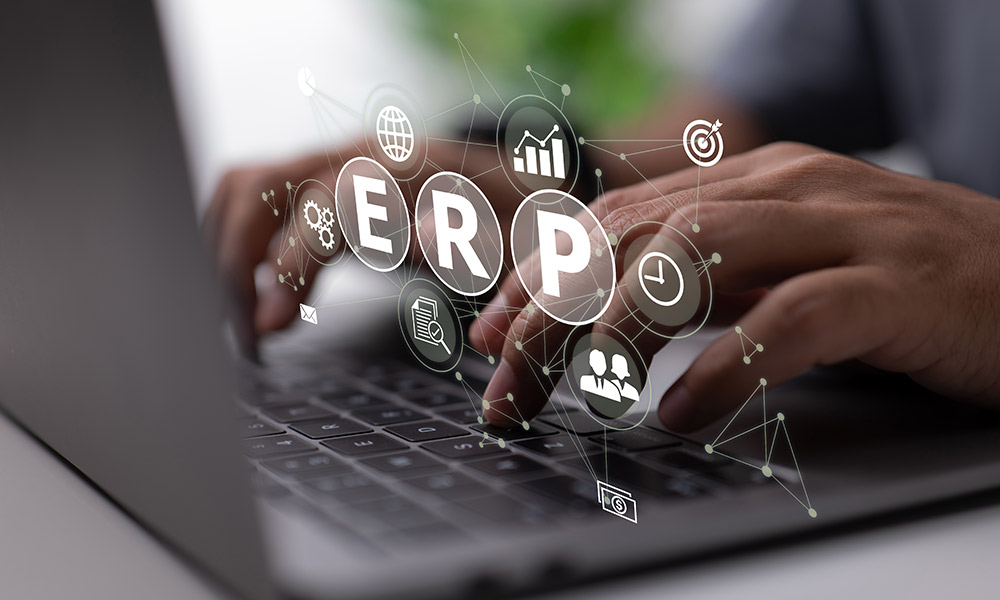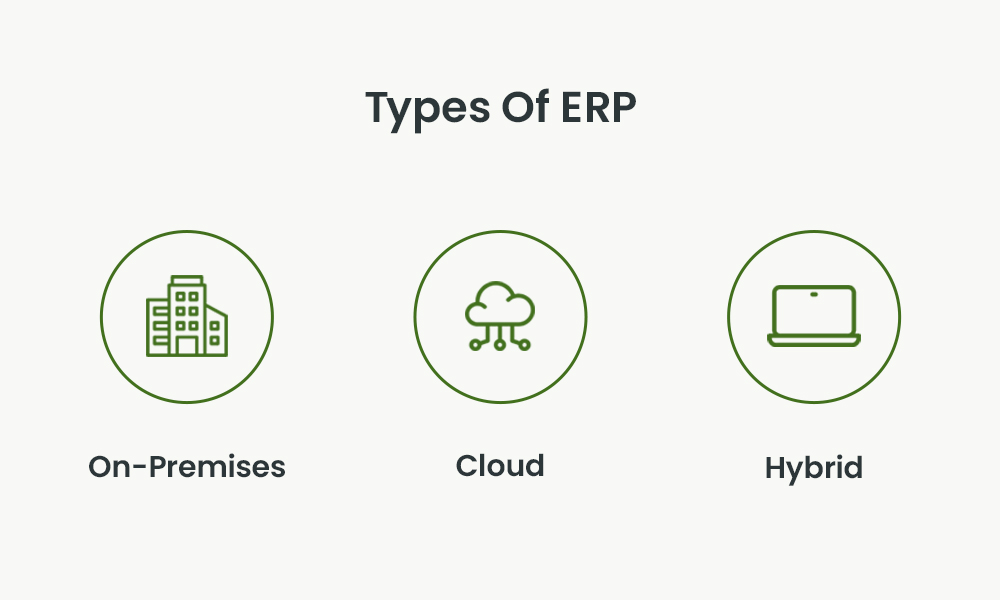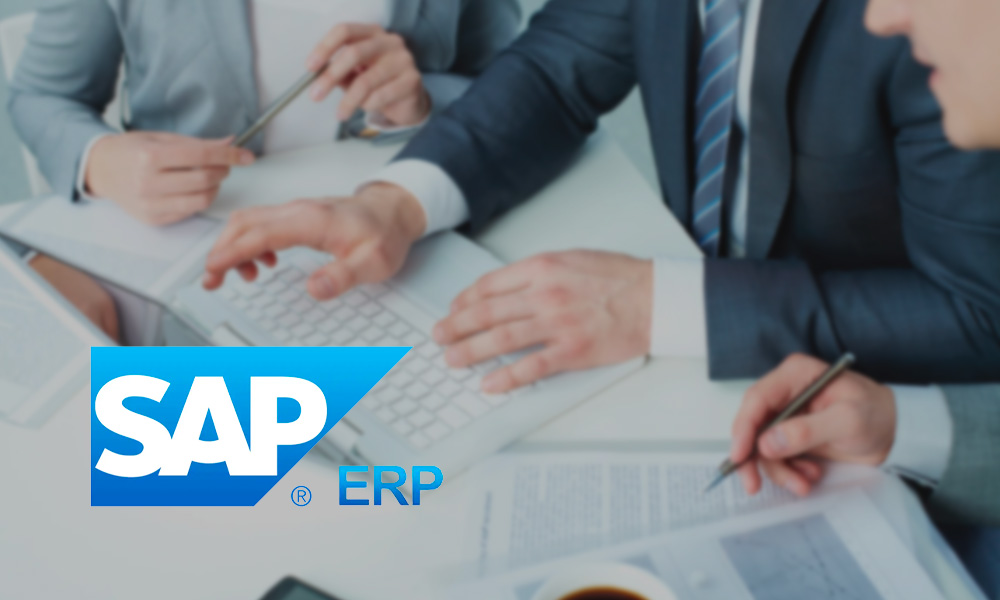Enterprise Resource Planning: 100% Beginner Overview!
ERP, or enterprise resource planning, is the process of integrating resources, information, and communication across a company's numerous internal departments. Human resources, finance, marketing, sales, inventory management, and so forth are examples of these subdivisions. ERP software is generally used by businesses to combine and streamline operations that improve job productivity and decision-making.

Enterprise resource planning software enables businesses to automate certain operations while also accommodating new ones to attain greater coherence and professionalism. The software supplements a company's requirements and goals by allowing it to have faster access to information from different departments, interact across divisions more quickly, and practice cost-effectiveness.
Enterprise resource planning systems consolidate and process data into a database that personnel from various departments, such as sales, marketing, and accounting, may access.
These apps improve organisational efficiency by increasing labour productivity, reducing overhead expenses and time, and enabling faster decision-making by automating data and giving flexible access.
These systems are classified as on-premises, cloud-based, or hybrid. It is up to the organisation implementing ERP software to select the best type for its business goals and operations to increase productivity.
How Does It All Work?
Enterprise resource planning solutions (ERP) seek to foster a culture of real-time business process management through the use of software and IT applications, on-premise or hybrid systems. Thus, ERP systems are designed to improve savings in terms of money, time, and manual labour.
Enterprise resource management apps collect, process, store in the cloud, and manage all data from various divisions of the organisation, removing the burden of data collection. Manual labour, on the other hand, takes longer to collect, process, and streamline data than ERP systems, which delays decision-making.
In the case of ERP solutions, everyone from management to employees has real-time, coherent, and cross-departmental access to information. The communication flow has been optimised to remove the time-consuming procedure of acquiring disparate information from various sources.

Collecting data from multiple departments like manufacturing, inventory and order management, customer service, sales and marketing, finance, and so on improves decision-making efficiency and accuracy. Furthermore, ERP software eliminates the chance of human error. Simultaneously, an ERP system may better explain the data by using graphs, pie charts, percentages, and tabular formats as needed by the firm.
For example, accounting and sales departments can use information processed by enterprise resource planning software to calculate the statistics they need to get valuable business knowledge. The accounting department, for example, can retrieve data from numerous spreadsheets. At the same time, a salesperson can perform a count of completed deals using data from the same portal or ERP system.
ERP Characteristics?
Enterprise resource planning applications are a collection of programmes designed to aid a company's growth and expansion. These include traits that help businesses run more efficiently, such as:
✣ Real-Time Data Availability
In real-time, vivid data is analysed to provide analytical information on evolving business trends, which aids in the capture of opportunities.
✣ Data Processing Centralisation
This improves information gathering throughout the organisation, resulting in faster decision-making and less time spent collecting this data with the assistance of technology.
✣ Data Flexibility & Transparency
Better data representation via ERP systems increases information understanding across departments by collecting, storing, and analysing data. It eliminates the chance of human error and makes data available even from a distance.
✣ Automatic Data Collection
With enterprise resource planning software, a database with insightful information and intelligence from numerous officials and departments is automatically built for the entire organisation. As a result, it eliminates several time-consuming operations.
✣ Customised Appearance & Functions
ERP systems are curated with unique features by software providers that try to understand an organization's unique requirements, vision, and mission. Thus, to benefit from the services of ERP systems, a company should be aware of the primary reasons for establishing one.

Types Of ERP
Enterprise resource planning systems can differ from one firm to the next, and a corporation can use more than one sort of ERP system, such as:
• Software Installed On-Premises
Companies or businesses who use this software keep it on-site, either physically or internally, on in-office computers and servers. These, however, are not remotely accessible, but the firm retains entire ownership and control.
• Cloud Computing Software
These cloud-based or web-based ERP systems are known as Software as a Service (SaaS) and are remotely available on any device with an internet connection. It is a subscription-based service with training, support, and customization provided by the service provider.
• Software Hybrid
This software integrates the two software services mentioned above. It is dependent on how the user organisation and service provider host and deploy them. This type is more adaptable and enables additional additions and implementations in current systems.
Let us examine the main uses and functions of Amazon's ERP systems for operating its marketplace.
SAP, for Systems Analysis and Program Development, is an example of enterprise resource planning. SAP is an ERP solutions firm based in Germany that has been in operation since 1972.
It has grown into a global doyen over the years by delivering well-founded and outstanding ERP application services in financial accounting, invoice verification, inventory management, logistical requirements, HR, order management, and sales help.
SAP's S/4Hana Cloud is the most powerful and intelligent ERP solution available, offering AI, machine learning, and advanced data analytics to ever-expanding global enterprises.
Amazon, a global marketplace, manages its product line, customer relations, and orders, as well as generates critical customised reports, using SAP ERP solutions. The method helps Amazon develop a more profitable supply chain and prevents the corporation from losing sales. Furthermore, the corporation has millions upon millions of country-specific products listed on its marketplace. As a result, such ERP solutions aid in the consolidation of this product information into a single database.
In the age of big data, the process of aggregating products and offers from disparate domains while guaranteeing data security becomes both a difficulty and an opportunity for e-commerce enterprises. From accounting to delivery, Amazon's productivity and profitability are ensured by the credible and secure usage of ERP systems. Furthermore, the use of ERP solutions has assisted it in developing a more customer-centric business profile and gaining a competitive advantage.

Why, Oh, Why Do We Need All This?
Finally, let us look at some of the advantages of ERP systems. These will aid in comprehending how ERP contributes to an organisation's long-term vision of growth and expansion.
✣ Information Automation & Integration
An ERP system allows for a unified database that serves as a one-stop shop for multiple company tasks, reporting, invoices, and analytics.
One of the key advantages is the ability to eliminate data silos. Data silos refer to inaccessible data that is locked away inside systems, databases, or apps that the ERP cannot access. This could be because the ERP software lacks the technical capabilities to connect to that specific data source.
✣ Improves Productivity
Without the assistance of an IT expert, ERP solutions and cloud services enable access to analytical data through thorough reports. An ERP system allows staff to spot problems on the fly (even remotely), obtain information from multiple departments in less time, and arrive at a speedy solution.
Full integration with Ecommerce apps means that the information everyone accesses is consistent and error-free for firms who use their ERP as the heart of their business data management. This is especially vital if your company has multiple locations or offices, or if you have remote workers who need to access business-critical information.
ERPs that can give consistent information to all employees are significantly more effective than the alternative, which requires team members to regularly log in to dozens of distinct systems to obtain the information they require. ERP and e-commerce information saves time and improves the efficiency of everyone in your organisation.
✣ Lowers Operating Costs
These solutions consolidate diverse workflow and information from several departments into a single database, eliminating excessive human interface and the possibility of human error, saving time and money, and so on.
This greatly lowers the requirement for human data entering. It is more than just a time saver to automate the input of data such as client names and address details. It reduces the possibility of human error, such as misspelt names, inaccurate addresses, or incorrect email addresses.
Customers who have their names misspelt on invoices may do more than just complain; they may go to the competition instead. Of course, addressing inaccuracies can result in missed orders, resulting in low customer satisfaction and additional expenditures for your organisation as you work to resolve the issues and replace goods that go missing.
✣ Provides An Advantage Over Competitors
When organisations implement bespoke solutions that are qualified, intelligent, and tailored, ERP solutions can move a business from 0 to 10 in terms of ranking. With real-time data availability, refined knowledge, and faster access to chances for addressing consumer complaints and engagement.
✣ Increases data security
Businesses thrive on data that is inherent to their operations, processes, and technology. Thus, a data repository on-premises or in the cloud helps minimise dangers and disinformation associated with fragmented data, such as generating reports, invoicing, and so on, and also eliminates data tampering.

Important Notes!
Let’s just recap a few things and highlight some important points to keep in mind.
What is the significance of enterprise resource planning?
It helps a company to synchronise disparate data into a manageable database that is critical to its operations. It promotes increased flexibility and openness while lowering costs and saving time.
What exactly is enterprise resource planning?
ERP entails data management to easily access critical information and communicate across organisational departments. These systems are classified into three types:
~ On-premises applications are hosted within an organisation and are not accessible remotely.
~ Cloud-based systems allow for remote access and add intelligent features such as AI, machine learning, or autonomous algorithms for speedier decision-making.
~ Hybrid software gives firms more flexibility in implementing ERP systems.
What are the measurable advantages of enterprise resource planning?
Among the tangible advantages are:
-
Data protection.
-
Significant cost and time savings.
-
Increased employee productivity due to real-time data availability.
-
The automatic creation of massive amounts of data and reports across departments.
-
Enhances the client redressal method (CRM)...not to be confused with Customer Relationship Management which is also another important CRM that you’ll want to keep in mind.

Closing Words
If a company is not growing, it is dying. Wholesalers, manufacturers, and distributors must constantly grow, change, and adapt. More expansion equals more items, consumers, data, and processing. It also implies that your company must be prepared to handle scalability effectively.
ERP integration with B2B eCommerce can help drive business growth significantly. Centralization, automated processes, fewer human errors, and cost reductions are just a few of the numerous advantages that firms gain from integration.
However, to be genuinely successful with eCommerce and ERP integration for B2B, you need a flexible platform that can supply solutions as new requirements arise. With software that converts the data you have into the data you need to grow, you can avoid data silos, bottlenecks, and juggling processes.
These recommendations will assist you in selecting a safe, scalable, and ready ERP-integrated B2B eCommerce system and achieving success in digital transformation.

